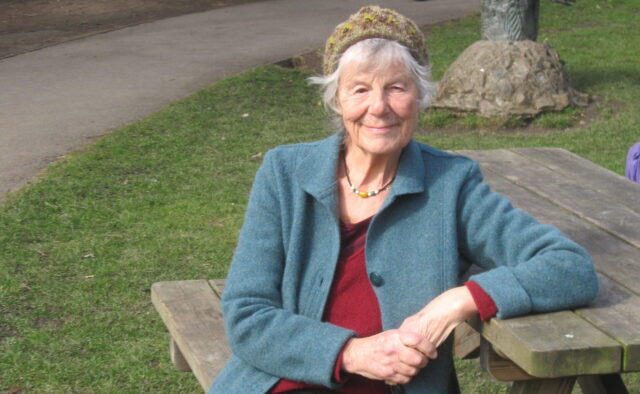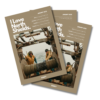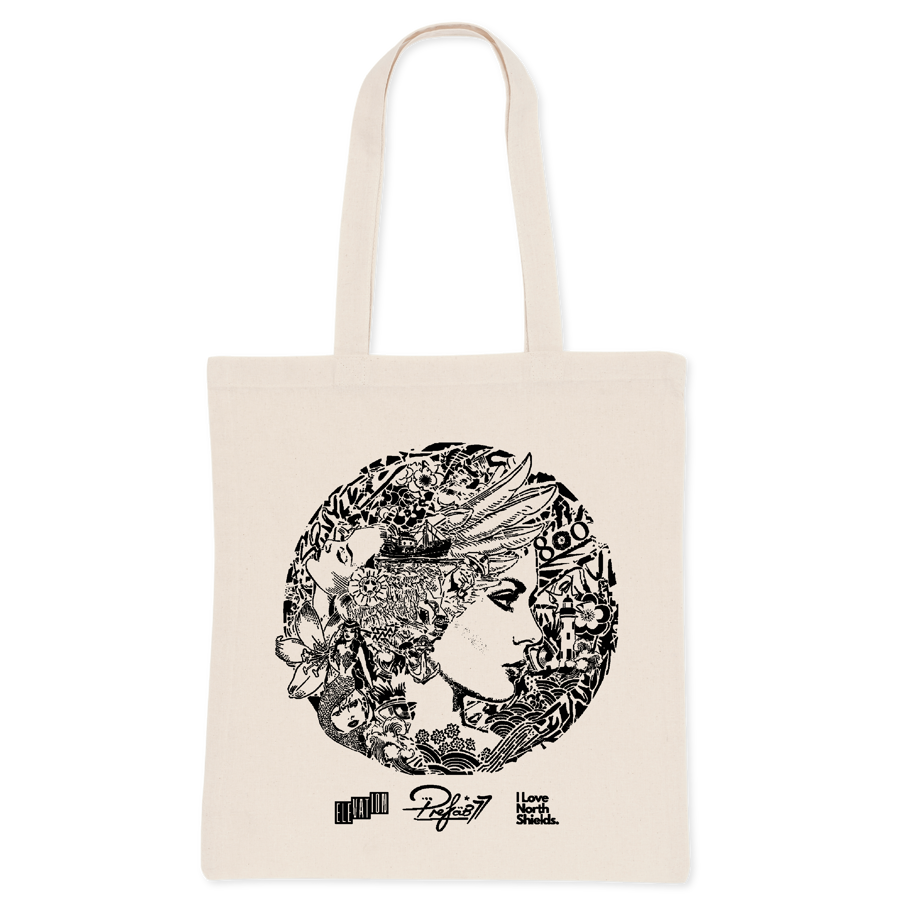By Ruby-Jane Armstrong Adams
In North Shields, the story of the publication Scarlet Women is more than just a chapter in history; it serves as a powerful reminder of our community’s spirit and the ongoing fight for women’s rights. A modest house on Washington Terrace, an ordinary street in our often-overlooked northern town, became the birthplace of a movement that raised awareness about women’s issues, violence, and marginalisation—topics still relevant today.
Before the Scarlet Women publications are archived at the Northumberland Archives, I had the privilege of speaking with Penny Remfry, one of the key women involved in its creation in the 1970s. Scarlet Women emerged after the 1976 Women’s Liberation Conference in Tyneside, where the local Coast Women’s group organized a workshop to find out if other women’s groups around the country had an issue with men not taking women’s concerns seriously. This led to the formation of the newsletter and the start of the Scarlet Women publication.
Penny recalled the frustration of women in political and activist groups, who were often patronised by men who would “pat women on the head” and tell them to “wait until after the revolution” for their issues to be addressed. Scarlet Women aimed to provide a platform for women’s voices, hoping to encourage discussion about how to best challenge male domination in political spaces.
Scarlet Women was published from Penny’s home on Washington Terrace, encouraging voices from various backgrounds, many of whom were involved in political movements. They explored the connections between socialism and feminism and brought in voices from around the world. Scarlet Women was just one of the Coast Women’s Group’s activities. They were actively involved in the community, including starting the Women’s Aid refuge, initially based in Borough Road, they published a newsletter called Shieldswomen, in contrast with the name of the ferry at the time, the ‘Shieldsman.’ Some individuals were also involved in setting up the Tyneside Rape Crisis Centre (now Rape Crisis Tyneside and Northumberland). Scarlet Women was about action as well as ideas.
Penny explained that the name Scarlet Women was chosen because it was “challenging to the image of women.” The term “scarlet woman” has historically been used to describe women who defy societal norms, and the name reflected the anger women felt about being ignored. The newsletter focused on issues such as women’s reproductive rights, sexuality, economic independence, and violence against women, with a global perspective. Contributors to the newsletter came from differing perspectives and so it helped to spark important conversations within the Women’s Liberation Movement.
Although the publication was produced locally, many of the women involved were not from the area. Penny noted that the women’s movement in the North-East wasn’t as prominent as it was in other parts of the country. In the North-East, the area was male-dominated, with a strong industrial focus, and many women struggled to achieve financial independence. This challenge persists today, with the average weekly wage for a woman in the North-East at £569, compared to the national average of £652.
When asked if the social revolution had been achieved, Penny simply said, “No.” She emphasized that women’s issues should be regarded as equally important as economic issues. The Scarlet Women group saw patriarchy and capitalism as systems that worked together to oppress people, especially women.
Reflecting on Scarlet Women’s legacy, Penny noted that although progress has been made for women, many issues remain the same, especially the issue of violence against women. “Violence and the threat of it is what keeps women down,” she explained. This is still a significant issue in the North, where domestic abuse is more prevalent than the national average. Penny stressed the importance of continuing the fight for women’s liberation.
The internet has both created new challenges and provided new opportunities for feminist discourse. While harmful platforms have gained attention like Andrew Tate’s, positive spaces such as the FiLia newsletter offer women a chance to discuss critical issues. Penny believes that spaces like Scarlet Women are still needed today. “It would be great,” she said, “if there was a similar publication now. Modern discussions often happen at an academic level, making them less accessible to the broader public.”
It’s fascinating to think that such revolutionary ideas were conceived and published in a small town like North Shields in the 1970s. For the women involved, it wasn’t just a task—it was part of their social lives. These women weren’t simply producing a publication out of obligation; they were engaging with the issues themselves and encouraging the sharing of perspectives and strategies with other feminist activists around the country. “Having a forum where women can talk about these things is really important,” Penny said. When Scarlet Women was started, women weren’t encouraged to discuss such topics. It was a revelation for many that these issues weren’t just individual problems, but shared experiences.
The rise of Scarlet Women from a small Northern town underscores the power of community-driven activism. It shows that meaningful contributions can come from anywhere, not just large cities with extensive media coverage. The publication sparked a broader conversation, reminding us that ideas from smaller areas can lead to meaningful change.
































